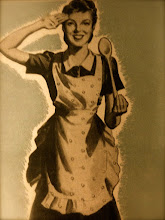 I love reading about the history of everyday items we take for granted, and salt is one of them. Of course, every mammal needs salt to survive, but in our modern Western world, where we are so divorced from basic functions of life, we forget this, and focus on the negative impacts of salt.
I love reading about the history of everyday items we take for granted, and salt is one of them. Of course, every mammal needs salt to survive, but in our modern Western world, where we are so divorced from basic functions of life, we forget this, and focus on the negative impacts of salt. This book explores much more that the tangible granules that make up salt, however. Salt, and the demand for it as a preservation agent, played a huge role in colonization, warfare, trade and empire. We see this with all the place names and words that begin with the prefix sal; Salzburg, salad, etc. I particularly liked the sections that dealt with its connection to fish and fishing. I never knew that part of the Hanseatic League's success was because they traded for salt with the Spanish and Basques to monopolize the production of pickled herring. I also learned about the salt processes which gave France an advantage over the British in the early fishery of Canada. This book was packed full of interesting facts and trivia, but, if you should read it, it is the sort of book that doesn't have to be read cover to cover.
I hate to say it, but I didn't enjoy No Impact Man quite so much. And perhaps it was for the opposite reason; much of the literature he relied upon in his one-year experiment to live as sustainable as possible, I had already read and/or knew about. For instance, in the chapter about sustainable and local food he relied heavily upon James MacKinnon and Alisa Smith's 100 Mile Diet. It was natural for him to reference them, but because I listened to No Impact Man, rather than read it, I couldn't just skim over this section. I was also a little confused about where Colin Beavan actually stood in regards to capitalism, and collectivism versus individualism. In one of the chapters he comes close to making a real critique of capitalism and the relentless drive for stuff that it creates, but at the end of the book seems to advocate that individual action will ultimately solve the ecological crisis we are in. I did really enjoy other aspects of the book; I felt he was very brave in exposing many private details of his family history and family life. I enjoyed his analysis of the positive impacts the experiment made in his social life, family, health etc. and the reminder that we only have one time to be alive, so why waste it on a bunch of artificial experiences and disposable stuff?
Now, I can move on to other books. I'll probably read several (used) novels and mysteries I have lying around. As for non-fiction, I am dying to read Bright-sided: How the Relentless Promotion of Positive Thinking Has Undermined America. But, being inspired by Colin Beavan, I won't buy it; I'll see if the local library has it.



No comments:
Post a Comment